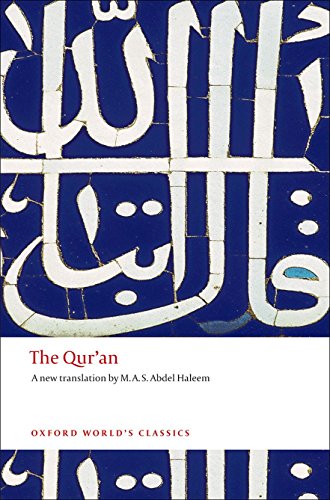Controversies Surrounding the Quran: Debunking Misconceptions
The Quran, considered the holy book of Islam, has been a subject of controversy among scholars, religious leaders, and skeptics throughout history. This religious text, believed by Muslims to be the literal word of God as revealed to the Prophet Muhammad, has faced a wide range of criticisms and misunderstandings. However, it is important to separate fact from fiction and explore the controversies surrounding the Quran in a balanced and informed manner.
Misinterpretation and Misrepresentation
One of the primary controversies surrounding the Quran is the misinterpretation and misrepresentation of its teachings. Critics often cherry-pick verses without considering the context or historical background in which they were revealed. This can lead to a distorted understanding of the Quran, perpetuating negative stereotypes and misconceptions about Islam.
In order to fully comprehend the Quran, it is important to study it in its entirety and consider the principles of interpretation (known as tafsir) that have been developed by scholars over centuries. These principles include contextual analysis, linguistic interpretation, and understanding the traditions of the time of the revelation. Without this holistic approach, one may fall into the trap of misinterpreting the Quran and misrepresenting its teachings.
Violent Verses and Jihad
Another controversy surrounding the Quran revolves around verses that some critics interpret as promoting violence or endorsing Jihad (holy war). These verses are often taken out of context and fail to consider the historical circumstances in which they were revealed.
The principle of abrogation (known as naskh) is an important concept in interpreting the Quran. It states that some verses, revealed earlier in Muhammad’s prophethood, were abrogated or superseded by later revelations. Understanding this principle is crucial to comprehending the true message of the Quran.
It is essential to note that the majority of the Quranic verses emphasize peace, justice, and compassion. Islam as a religion promotes peaceful coexistence, and the concept of Jihad in the Quran primarily refers to a spiritual struggle to maintain faith and righteousness. Misconstruing Jihad as a call for violence ignores the broader teachings of the Quran.
Scientific Accuracy
Some critics have questioned the scientific accuracy of certain verses in the Quran, suggesting that they contradict established scientific knowledge. However, it is crucial to approach such claims with caution and consider the context in which these verses were revealed.
The Quran is not a book of science, but rather a guide for spiritual and moral guidance. Scientific interpretations of Quranic verses should be understood metaphorically rather than as absolute scientific explanations. Many verses in the Quran, when understood in their proper context, do not contradict scientific findings, but rather provide spiritual and moral lessons.
Women’s Rights
Another controversy surrounding the Quran relates to its teachings on women’s rights. Some critics argue that the Quran’s teachings are patriarchal and discriminate against women. However, this interpretation fails to consider the historical and cultural context in which the Quran was revealed.
Within its historical context, the Quran introduced several reforms and protections for women’s rights, such as inheritance rights, the prohibition of female infanticide, and the acknowledgement of women’s autonomy in marriage. However, cultural practices and personal interpretations of the Quran often deviate from its intended message, leading to misunderstandings and inequalities.
It is important to distinguish between cultural practices and the actual teachings of the Quran. Many scholars argue that the Quran provides a foundation for gender equality, and any inequalities or oppression experienced by women within Muslim-majority societies can be traced back to cultural practices rather than the Quran itself.
Preservation and Variants
Some skeptics have raised concerns about the preservation of the Quran and the presence of variants in its text. However, extensive historical evidence supports the claim that the Quran has been remarkably preserved throughout history.
The process of memorization and transmission of the Quran has been a central aspect of Islamic tradition since its revelation. Muslims believe that the Quran has been preserved both orally and in written form, which helps ensure its accuracy and authenticity. Additionally, the existence of multiple written manuscripts from early Islamic history further confirms the preservation of the Quran.
While there may be minor variations in non-essential aspects such as pronunciation or orthography, the overall message and content of the Quran remain consistent across different versions and translations.
In conclusion, it is evident that the controversies surrounding the Quran are often rooted in misinterpretation, misrepresentation, and a lack of contextual understanding. By approaching the Quran with scholarly rigor and considering its historical and cultural context, one can gain a deeper understanding of its teachings and dispel misconceptions that continue to perpetuate controversy.






